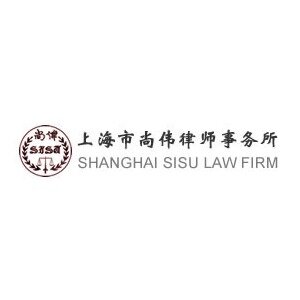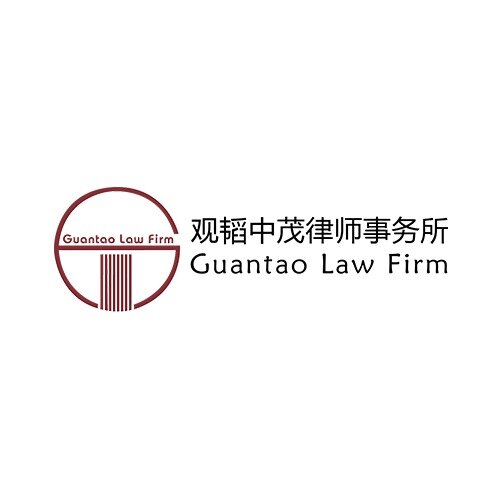Best Bankruptcy & Debt Lawyers in China
Share your needs with us, get contacted by law firms.
Free. Takes 2 min.
Or refine your search by selecting a city:
List of the best lawyers in China
About Bankruptcy & Debt Law in China
Bankruptcy and debt laws in China are governed by the Enterprise Bankruptcy Law, implemented in 2007, which primarily deals with the procedures for corporate bankruptcy. The system is designed to help both debtors facing financial distress and creditors looking to recoup their claims. In situations involving individual debt, other general contract laws may apply. The process strives to balance the interests of creditors and debtors while maintaining economic stability. However, the laws are complex, and navigating the system often requires professional legal assistance.
Why You May Need a Lawyer
There are numerous situations where individuals or businesses may need legal help with bankruptcy and debt issues in China. These include:
- Handling corporate bankruptcy filings and understanding the implications.
- Negotiating and reaching settlements with creditors.
- Understanding one's rights and obligations under the existing debt contracts.
- Interpreting laws regarding debt recovery and enforcement of judgments.
- Avoiding fraudulent transfers and other legal pitfalls during insolvency procedures.
- Addressing complex cross-border insolvency cases.
- Seeking protection from creditors through legal instruments.
Local Laws Overview
China's bankruptcy laws are encapsulated in the Enterprise Bankruptcy Law, which applies to corporate entities, including state-owned enterprises and private companies. Key aspects include:
- Restructuring: Enterprises can apply for restructuring to continue their operations while repaying debt under a court-supervised plan.
- Liquidation: This refers to winding up a company's affairs and distributing its assets to creditors.
- Conciliation: Involves an agreement between creditors and debtors facilitated by the court to resolve financial distress.
- Creditor Committees: These bodies are formed to protect creditor interests during bankruptcy procedures.
- Debtor-in-Possession: A provision allowing a debtor to retain control of the property and continue business operations.
While individuals cannot declare bankruptcy, personal debt issues are typically resolved through negotiation or litigation under contract law.
Frequently Asked Questions
What is the primary law governing bankruptcy in China?
The primary law is the Enterprise Bankruptcy Law, which governs corporate insolvency proceedings.
Can individuals declare bankruptcy in China?
No, the current legal framework does not provide for personal bankruptcy; issues are resolved through contract law and negotiations.
What is the role of a creditor committee?
A creditor committee represents the interests of all creditors, overseeing the debtor's compliance with bankruptcy procedures.
What happens during a restructuring process?
A restructuring allows a debtor to reorganize operations and negotiate a repayment plan with creditors under court supervision.
Are foreign creditors recognized in Chinese bankruptcy proceedings?
Yes, foreign creditors are recognized and can participate in bankruptcy proceedings along with domestic creditors.
What is the duration of bankruptcy proceedings in China?
It varies depending on the complexity of the case, but typically proceedings are lengthy and can extend over months or years.
How are debts prioritized in bankruptcy?
Debts are prioritized based on secured debts, wages, taxes, and unsecured debts, in that order, during asset distribution.
Can a company operate during bankruptcy proceedings?
Yes, under the debtor-in-possession principle, a company can continue operations during the proceedings.
What is the penalty for fraudulent transfers before declaring bankruptcy?
Fraudulent transfers are voidable by the court, and parties may face legal consequences, including fines or imprisonment.
How are cross-border insolvencies handled?
They are generally guided by international treaties and Chinese laws, requiring close coordination with foreign legal entities.
Additional Resources
For comprehensive advice and support on bankruptcy and debt matters in China, you may consider these resources:
- Local law firms specializing in bankruptcy and corporate law.
- Chinese government ministries, such as the Ministry of Justice, providing legal guidelines.
- The Supreme People’s Court of China, which issues judicial interpretations of bankruptcy laws.
- China’s National Development and Reform Commission for economic-related queries.
- Professional organizations like the China Insolvency Practitioners Association.
Next Steps
If you need legal assistance with bankruptcy and debt matters, consider the following steps:
- Research and gather all relevant financial documents and contracts.
- Consult with a qualified lawyer specializing in bankruptcy and debt law in China.
- Discuss potential strategies for addressing your specific situation.
- Consider mediation or arbitration to resolve disputes, especially for corporate issues.
- Monitor any developments in local laws that might impact your case.
Engaging a legal professional will ensure that your interests are protected and that you navigate the complexities of the Chinese legal system effectively.
Lawzana helps you find the best lawyers and law firms in China through a curated and pre-screened list of qualified legal professionals. Our platform offers rankings and detailed profiles of attorneys and law firms, allowing you to compare based on practice areas, including Bankruptcy & Debt, experience, and client feedback.
Each profile includes a description of the firm's areas of practice, client reviews, team members and partners, year of establishment, spoken languages, office locations, contact information, social media presence, and any published articles or resources. Most firms on our platform speak English and are experienced in both local and international legal matters.
Get a quote from top-rated law firms in China — quickly, securely, and without unnecessary hassle.
Disclaimer:
The information provided on this page is for general informational purposes only and does not constitute legal advice. While we strive to ensure the accuracy and relevance of the content, legal information may change over time, and interpretations of the law can vary. You should always consult with a qualified legal professional for advice specific to your situation.
We disclaim all liability for actions taken or not taken based on the content of this page. If you believe any information is incorrect or outdated, please contact us, and we will review and update it where appropriate.
Browse bankruptcy & debt law firms by service in China
China Attorneys in related practice areas.
Browse bankruptcy & debt law firms by city in China
Refine your search by selecting a city.














